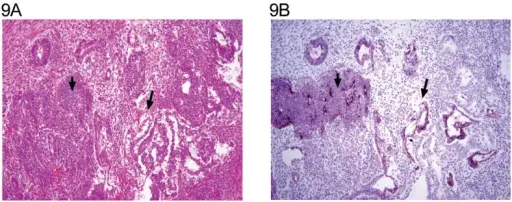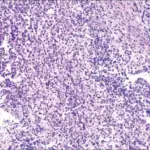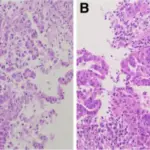A germ cell tumor is a neoplasm derived from germ cells which may be benign or malignant.
What is the Pathology of Germ Cell Tumors?
Etiology: The cause of Germ Cell Tumors is unknown.
Genes involved: Unknown.
Pathogenesis: Proliferation of germ cells.
Histology: The histology associated with Germ Cell Tumors shows resemblance to seminoma / dysgerminoma. There are epithelioid cells with abundant PAS+ cytoplasm, and large, round nuclei with irregularity and pleomorphism. They may have prominent nests of lymphocytes with occasional granulomatous inflammation that may obscure tumor cells. Frequent mitotic activity and necrosis may be observed.
How does Germ Cell Tumors Present?
Patients with Germ Cell Tumors typically are of age group 10-19 years and males are more commonly affected. The symptoms, features, and clinical findings associated with Germ Cell Tumors include thirst, excess urination, nausea, and vomiting.
How is Germ Cell Tumor Diagnosed?
Germ cell tumor is diagnosed by physical exam and biopsy.
How is Germ Cell Tumor Treated?
Germ cell tumors are treated by surgical resection with or without chemotherapy.
What is the Prognosis of Germ Cell Tumors?
The prognosis of Germ Cell Tumors is fair.



